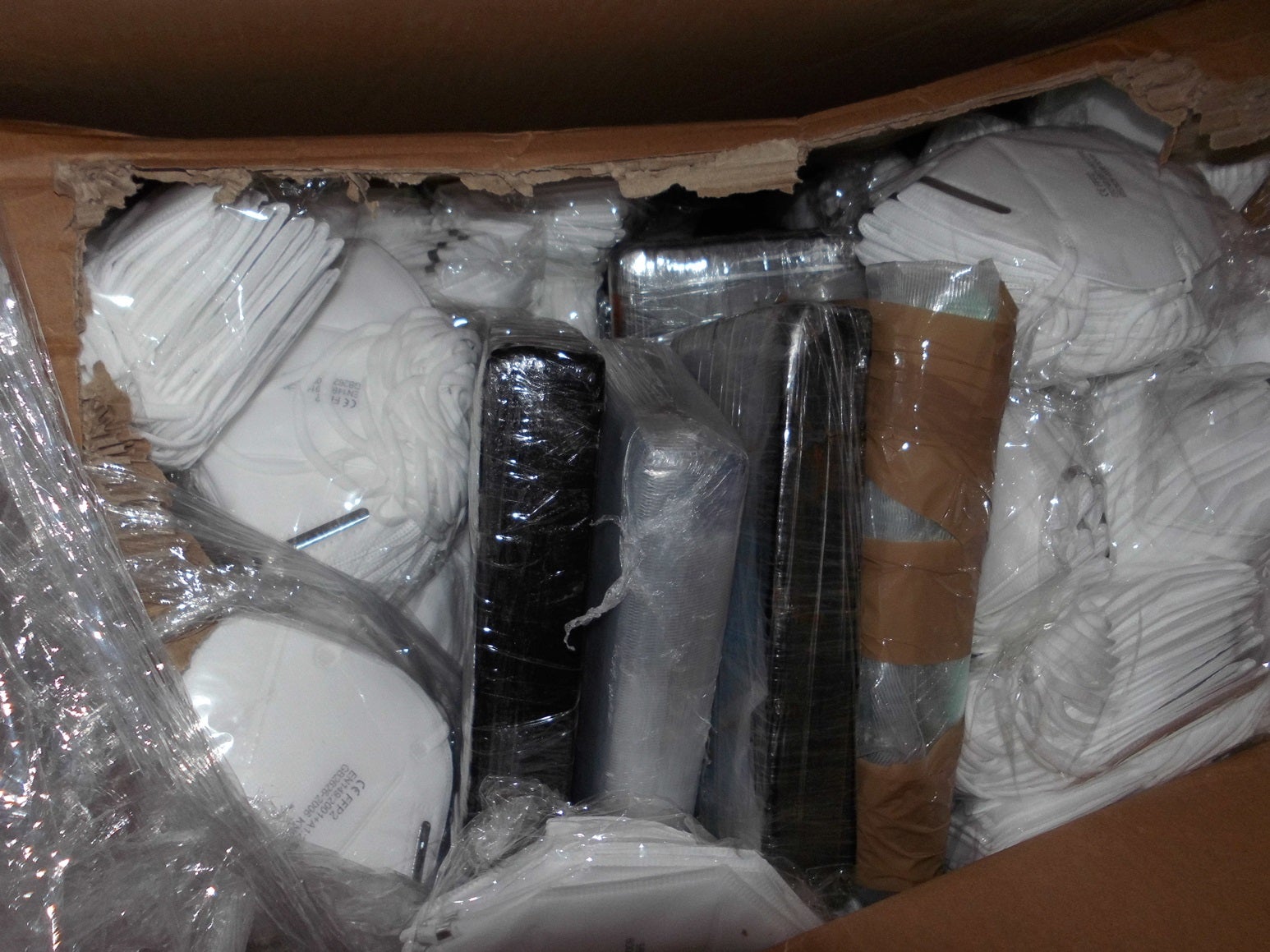Coronavirus: Drug dealers ‘disguising themselves as key workers’ during UK lockdown
Gang attempts to smuggle cocaine worth £1m into UK hidden inside face mask shipment as criminals change tactics
Drug dealers are disguising themselves as key workers to avoid police during the UK’s coronavirus lockdown, officials have revealed.
Lynne Owens, the director-general of the National Crime Agency (NCA), said gangs were also dealing from supermarket car parks in an attempt to mix in with crowds.
“We know that some groups are finding it harder to transport their commodities and are adapting their methods,” she told a press conference on Wednesday.
“Intelligence indicates that they are seeking to deal drugs in supermarket car parks, and to portray themselves as key workers to prevent being stopped by police.”
Ms Owens said some dealers were wearing hi-vis amid “concerns about closer police scrutiny” as fewer people are on the streets.
The global coronavirus pandemic has also made it more difficult for international organised crime groups to smuggle drugs into the UK.
On Tuesday night, a Polish van driver was stopped near Calais carrying a shipment of face masks – which concealed 14kg of cocaine.
The Border Force said the drugs, which had a street value of around £1m, were to be smuggled into the UK via the Channel Tunnel.
“It is evidence of how groups are changing their behaviour,” Ms Owens said. “There are fewer drugs in the UK and prices are rising.”
She said the NCA was continuing to battle “county lines” gangs, who use children to transport drugs from urban to rural areas, to ensure they cannot successfully adapt to the coronavirus outbreak.
The NCA is also monitoring the potential impact on gang rivalries, amid concerns the lack of drug availability and rising prices will drive up violence.

Provisional data from the 43 regional police forces in England and Wales show a 28 per cent fall in overall crime in the four weeks to 12 April, compared with the same period last year.
Serious assault and robbery have both fallen by 27 per cent, with rape and residential burglary down 37 per cent and shoplifting halved.
But Deputy Chief Constable Sara Glen, the national lead for charging, said the last week of data had seen an “increase in serious violence and we are concerned about it”.
She added: “There are concerns that there is a correlation between people coming off the gear, going cold turkey and violence increasing in the home environment.”
Martin Hewitt, the head of the National Police Chiefs’ Council (NPCC) appealed for people to continue reporting crime and asking for help during the coronavirus outbreak.
“Despite the impact on our staffing levels, police officers are still out there in their communities fighting crime and protecting victims,” he added.
“Our message for the public is to continue reporting crime and incidents to us, particularly those who are at risk. My message is that we will come when you call for help.”
Across the UK, 10 per cent of police officers and staff are currently absent through sickness, self-isolation or caring responsibilities.
But Mr Hewitt said policing remained in a “strong position” because of the drop in normal demand and ranks being bolstered by voluntary special constables and retired officers returning to duty.
A small number of crime types, including domestic abuse, are expected to increase during the lockdown.
The NCA is working to prevent a rise in online child sex offences, as paedophiles seek to take advantage of school closures causing more children to be at home.
Ms Owens said fraudsters were also seizing on the pandemic by selling fake protective equipment, testing kits that do not work or using coronavirus for phishing, ransomware and malware scams.
Six websites linked to scams have already been taken down and 60 more are being monitored by the NCA.
“Fraudsters are exploiting coronavirus for gain,” Ms Owens said. “The losses to victims exceed £1.8m.”

